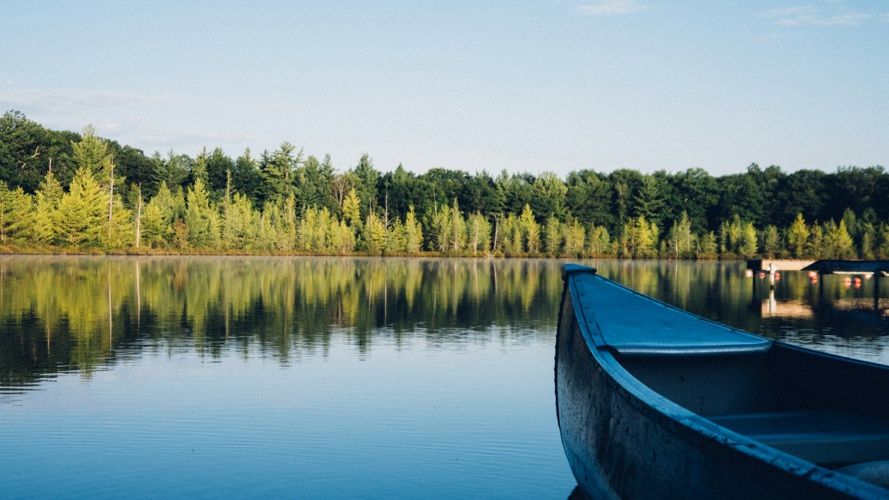Religious summer camps for kids: What to know as a parent

Introduction
Religious or faith-based camps offer families a unique opportunity to align summer experiences with their spiritual values. Whether you're looking for a nurturing environment grounded in faith, or simply seeking a camp that reinforces your family’s beliefs, these camps can provide an enriching summer experience. This guide is designed to help you navigate the differences between day and overnight religious camps-so you can make the right choice for your child’s first faith-based camp experience.
Key takeaways:
- Religious camps blend traditional camp fun with spiritual learning and values.
- Day camps are great for younger kids or first-timers staying local.
- Overnight camps provide deeper spiritual connection and independence.
- Faith-based programming varies widely-review each camp's values and mission.
- Choosing between day and overnight depends on age, maturity, and comfort level.
Table of Contents
What is a religious faith-based camp?
Religious or faith-based camps are built around a specific belief system or spiritual worldview. These camps integrate faith teachings, daily worship or devotionals, and character-building activities rooted in religious values-whether Christian, Jewish, Muslim, or other denominations. They're often run by churches, religious schools, or nonprofit ministries.
For day campers
Day faith-based camps typically operate within local churches, religious schools, or community centers. They often run for a week or two and include morning devotionals, themed lessons, crafts, songs, and field games. Staff are usually members of the faith community and integrate values-based leadership throughout the day.
For overnight campers
Overnight religious camps often provide a more immersive experience-combining cabin living, outdoor adventure, and spiritual formation. Campers participate in worship services, evening bonfires with testimonies, and small-group reflection. These camps promote independence, faith exploration, and tight-knit peer communities.
Typical camp activities
Religious camps balance fun with faith by offering traditional activities infused with spiritual lessons. Campers might join Bible studies or faith-based workshops, sing in praise sessions, or learn service-based leadership. Outdoor fun still plays a big role-think hiking, boating, sports, and team-building challenges.
For day campers
Day campers get a mix of high-energy games and structured faith content. Activities change frequently to keep interest high and energy flowing. Lessons may be reinforced through skits, music, crafts, or themed challenges.
For overnight campers
Overnight campers go deeper-participating in extended worship, evening devotionals, campfire storytelling, and multi-day service projects. The extra time allows space for deeper spiritual growth and close friendships.
Sample daily schedule
Day camp schedule
| Time | Activity |
|---|---|
| 8:30 AM | Drop-off & morning prayer |
| 9:00 AM | Faith-based lesson & skits |
| 10:30 AM | Outdoor games |
| 12:00 PM | Lunch & fellowship |
| 1:00 PM | Music & praise |
| 3:00 PM | Pick-up |
Overnight camp schedule
| Time | Activity |
|---|---|
| 7:30 AM | Wake-up & quiet time |
| 8:00 AM | Breakfast & morning chapel |
| 9:30 AM | Service project or Bible study |
| 12:00 PM | Lunch |
| 1:30 PM | Outdoor recreation & electives |
| 5:30 PM | Dinner & free time |
| 7:00 PM | Evening worship |
| 9:00 PM | Cabin time & lights out |
What to expect as a parent
For day campers
Parents of day campers can expect to be involved with daily routines-packing lunches, managing pick-up/drop-off, and keeping up with daily updates from staff. Communication is often shared through email, take-home notes, or camp apps. These camps tend to be more affordable and provide a solid introduction to the camp experience.
For overnight campers
Overnight camp parents will prepare their child for extended time away-packing an overnight camp checklist, discussing homesickness, and reviewing safety protocols. Camps often offer scheduled calls or photo galleries to ease separation anxiety. Expect an all-inclusive fee covering meals, lodging, and activities.
Benefits of religious camps
Day camp benefits
Day camps provide flexibility and familiarity. Kids return home each evening, making it easier for younger children or those new to camp life. They're more affordable and offer a great way to experience faith-based learning without a big commitment.
Overnight camp benefits
Overnight religious camps offer a deeper experience. Campers gain independence, confidence, and form close bonds with peers. The immersive setting also enhances spiritual growth and personal reflection in ways that day settings often can't match.
How to choose between day and overnight
Choosing between a day or overnight religious camp depends on your child’s maturity, comfort with being away from home, and your family’s schedule and budget. Younger or more tentative kids may thrive in a day camp, while older children seeking a deeper experience may be ready for overnight adventures.
Think about camper readiness, independence level, and interest in exploring faith more deeply. If you’re unsure, many families start with day camps and transition to overnight camps in later summers.
FAQ
- Are religious camps only for families of the same faith?
- Not always. While many do follow a specific faith tradition, some welcome campers from different or no religious backgrounds.
- What faith traditions are represented in religious camps?
- Common types include Christian, Jewish, Muslim, and interfaith camps. Each has unique values, customs, and programming.
- How do camps help with homesickness?
- Most overnight camps train staff in camper readiness and homesickness strategies and offer parent resources before and during the session.
- Is ACA accreditation important for religious camps?
- While not required, ACA accreditation is a mark of quality and safety. It shows that a camp meets national standards-even faith-based ones.
- What should I pack for a religious overnight camp?
- Follow the camp’s overnight camp checklist. Essentials usually include clothing, toiletries, a Bible or faith text, and modest swimwear.
- Do religious camps include regular worship or prayer?
- Yes, daily worship, devotional time, or prayer is typically woven into the camp schedule depending on the camp’s denomination.
Conclusion
Religious and faith-based camps offer a unique blend of spiritual guidance and traditional summer fun. Whether you choose a day camp close to home or an overnight experience, the key is finding the right environment where your child can grow in both faith and friendship.
We hope this guide gave you a clearer picture of what to expect and how to choose the right camp style for your family. As always, review each camp’s values, safety practices, and communication style to ensure it aligns with your goals.



